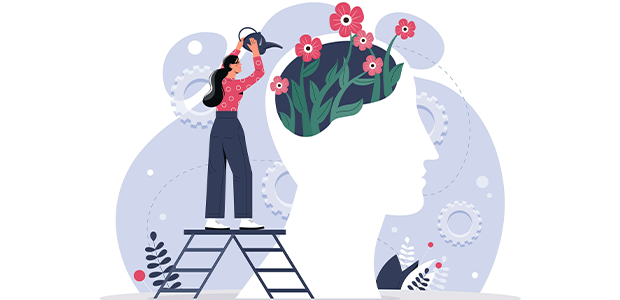
How entrepreneurs can maintain wellbeing, from finding balance to avoiding burnout
Many entrepreneurs make a habit of placing a premium on the relentless pursuit of success at all costs. But investing your very soul into starting, developing, growing, and running a venture nonetheless often takes a high emotional toll.
Even so, maintaining mental wellbeing – a state defined by the experiencing of satisfaction, positive affect, and psychological functioning – remains an issue frequently underestimated and overlooked. The unique challenges entrepreneurs face – the blistering pace, the intense uncertainty, the never-ending pressure, the merciless competition – are typically regarded as the basic price to pay.
Recent research underscores this growing trend toward entrepreneurial ambitions that sacrifice wellbeing. One survey revealed that almost nine in 10 founders (87.7%) reported experiencing some form of mental health issue. Another survey found that almost half (49%) of 242 entrepreneurs reported mental health conditions, topped by depression (30%) and anxiety (27%), at rates far exceeding the 7% prevalence in the broader US population. Yet other research showed that entrepreneurs with compromised wellbeing were less productive, persistent, and innovative, resulting in lower economic output and fewer employment opportunities.
This phenomenon, known as "the founder's blues," typically starts right at the top. Twitter CEO Jack Dorsey is a notorious case in point, in the extreme, going so far as to fast for 48 hours at a time to achieve “mental clarity.” The popular HBO series “Silicon Valley'' depicted Soylent Green meal replacements to maximise working hours, even at the expense of health. Most disturbing of all, the tech industry has seen a series of high-profile suicides claiming the lives of notable figures such as Aaron Swartz, co-founder of Reddit, and Tristan O'Tierney, co-founder of Square.
Entrepreneurs are different from traditional workers. As research has shown, they operate with a high degree of autonomy, have the opportunity to direct themselves through tasks, and derive greater meaning from work. But complications ensue as entrepreneurship blurs the lines between work and personal life. Founders so deeply identify themselves with their brainchildren, so intensely derive meaning and purpose from their ventures, that they work excessively, leaving little opportunity for moments of mental detachment and recovery.
All too often, then, entrepreneurs suffer from states of physical and mental distress, whether frustration, general dissatisfaction or, in severe cases, impaired daily functioning that compromises decision-making, relationships, and the quality of essential business tasks to be performed. This scenario exemplifies the "recovery paradox," in which, ironically enough, those most in need of recovery are the least likely to engage in it. Addressing this paradox requires targeted interventions to promote wellbeing.
That’s why Lehigh University is teaming up with the Nasdaq Entrepreneurial Center and TU Dortmund University in Germany to launch a comprehensive study on entrepreneurial wellbeing. We recognise that entrepreneurship is multifaceted – demanding the managing of finances, operations, marketing, and human resources – and presents risks significant enough to result in taxing levels of stress. Its very nature – its unpredictability, its insistence on round-the-clock decision-making, and innovation – calls for working long hours under constant pressure with limited resources.
Dr Daniela Giménez Jiménez, professor of entrepreneurship at TU Dortmund University is co-leading the study. She specialises in research on women in entrepreneurship as well as sustainable entrepreneurship and has published in top academic journals.
Our study aims to identify the specific stressors commonly faced by entrepreneurs in the early and later stages of their ventures. We’ll also focus on the role that support networks can play for entrepreneurs to stay resilient in the face of adversity. Toward that end, we’ll conduct surveys and focus group interviews with diverse entrepreneurs from different industries and geographical locations. The resulting data will be collected through the Nasdaq Entrepreneurial Center in the heart of the Silicon Valley entrepreneurial ecosystem.
We are particularly interested in understanding how entrepreneurs can strike a balance between gung-ho exuberance and baseline practicality. We intend to unveil potential targeted interventions, such as enlisting strong community support networks. Along these lines, we expect to develop effective strategies and coping mechanisms that enable entrepreneurs to better manage stress and maintain wellbeing – and, in the process, contribute to more successful ventures without sacrificing mental health.
Ultimately, our goal is to elevate wellbeing in the startup world to a much higher priority. Raising awareness of the special challenges entrepreneurs confront – and simultaneously providing strategies for support that are based on evidence – will ideally lead to a startup ecosystem that’s more sustainable and, equally important, compassionate.

